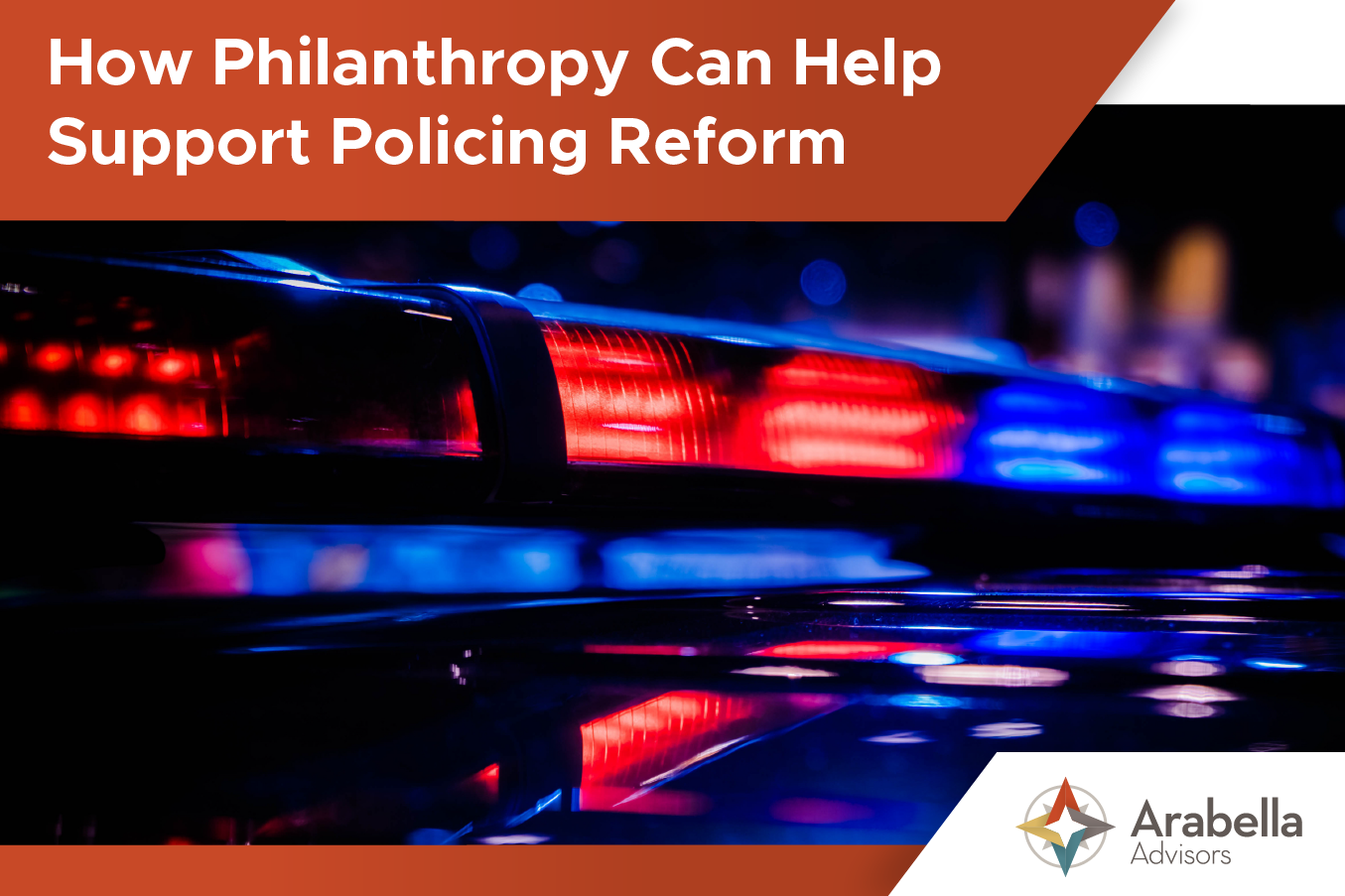5 Insights on How Philanthropy Can Help Support Policing Reform

On June 18, 2020, Arabella Advisors hosted our latest webinar, “Policing: The Donor Moment and What Is Possible.” The webinar focused on the immediate role philanthropy must play in meeting this moment of crisis and opportunity in reforming our current approach to policing. In the context of long-overdue public attention on policing practices that place undo harm and burden on communities of color and increasing public will for change, the current moment calls for more than tinkering around the edges of change. True transformation requires a holistic reevaluation of our approach to public safety, prioritization of upfront investments in community-led solutions, and real accountability measures that protect communities of color.
Our speakers brought deep and diverse experience to the conversation. They treated the audience of funders, advisors, and fellow changemakers to a fascinating and wide-ranging discussion on how philanthropic partners can focus resources to advance needed changes. Arabella’s CEO, Sampriti Ganguli, moderated the conversation. Our speakers were:
- Ron Davis, Former Director of the Office of Community Oriented Policing Services, US Department of Justice
- Alicia Garza, co-creator of the Black Lives Matter Global Network and Principal at Black Futures Lab
- Phil Goff, Co-founder and CEO of The Center for Policing Equity
- Vanita Gupta, President and CEO of The Leadership Conference on Civil & Human Rights, and
- Billy Watterson, Director of Galaxy Gives
You can view a recording of the webinar here (noted: due to technical difficulties, the first few minutes of the session did not record properly). A handful of the key points our speakers made are summarized below.
- Reforming policing to reduce harm to communities of color will require pulling multiple levers of power. Alicia Garza noted that, “It is really important for us in this moment not to have a one-stop-shop approach, but to really, really deeply think about what are the various levers of power that we need to move, who can pull those levers of power, and what do they need to be able to do that.”
- Reforming policing to reduce harm to communities of color will require working in (and on) several systems at the same time. Phil Goff pointed out that we must advance civil rights legislation even as we’re supporting institutional changes and listening to leaders in activism, especially around police culture. “We cannot change systems without the support of the community and the buy-in of the police unions and organizations.”
- We need to bear in mind that “budgets are moral documents.” Vanita Gupta noted that “localities have been overspending on criminal justice system infrastructure and policing and divesting in housing, education, jobs, and healthcare. Some people call it ‘defunding’ the police, other people call it ‘divest/invest.’ But whatever you call it, if you care about mass incarceration, you have to care about skewed funding priorities.” Changing those priorities will require difficult, detailed, but ultimately worthwhile budgetary battles.
- We need to go to work on cultures as well as policies. Ron Davis noted that “policy tells me what I am required to do, culture tells me what I am expected to do and not do, and tells me what I am going to be held accountable for. So, if you just change the policies, the culture will remain the same. It has to be inside the organization and outside”
- While this field can be difficult to fund, there is a role for philanthropy. Billy Watterson noted that the field is difficult to fund for those not familiar with it, as movement leaders are not always affiliated with institutions, and regulations vary widely and do not always capture data. He posed both a question that is also a challenge for philanthropy: “how do we think about making a difference in such a complex landscape?”
One key takeaway all our speakers endorsed: there is no one right place to fund this field, especially in the current moment. The needs right now are varied and at multiple levels, so there are many places to plug in and help. The first order of business for donors looking to make a difference is to get involved by learning more about local efforts to change these harmful systems and get funds moving to organizations that are positioned to make change.
You can hear much more from all of our speakers by viewing the recorded webinar here. Huge thanks to them all for joining us and sharing their insights.
